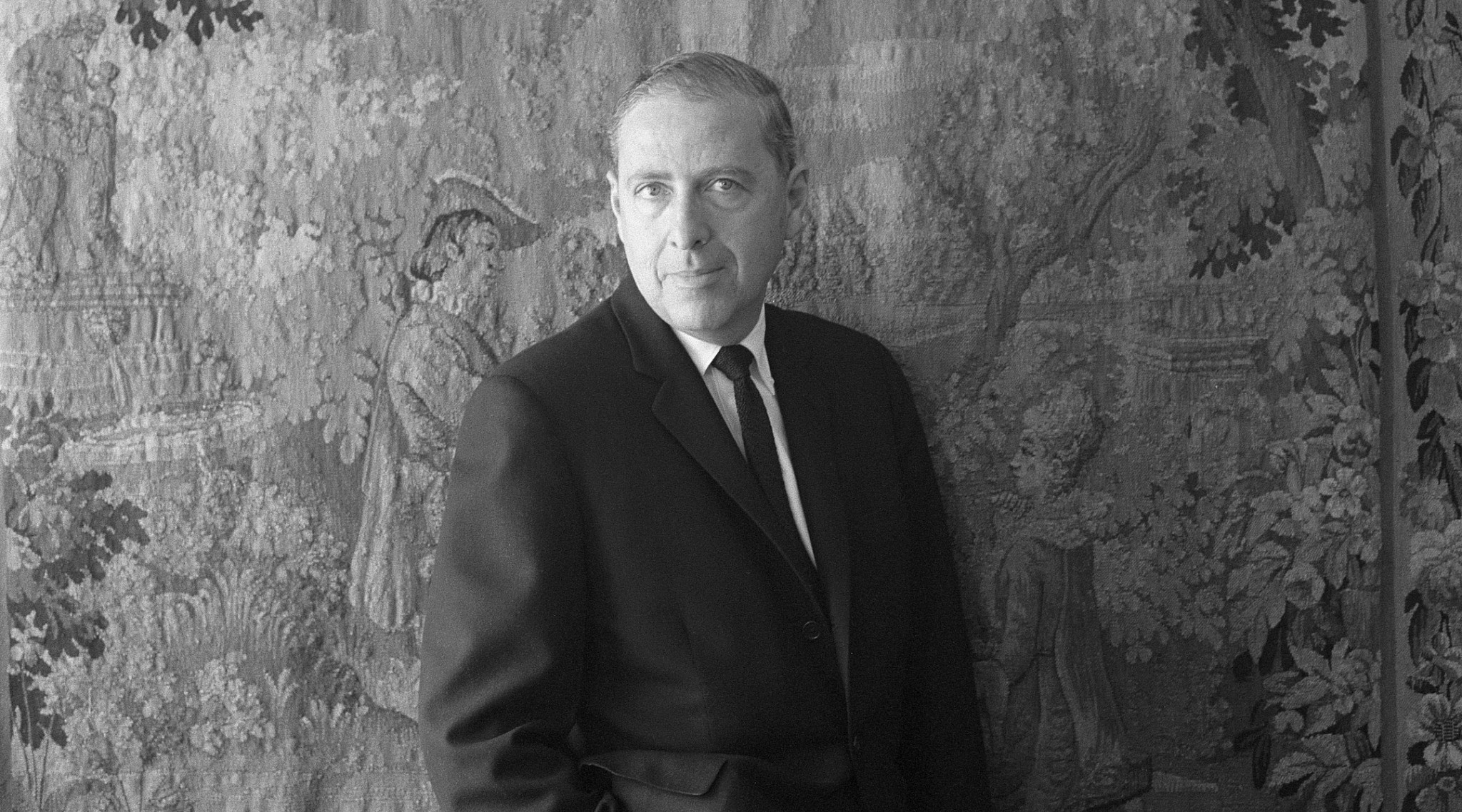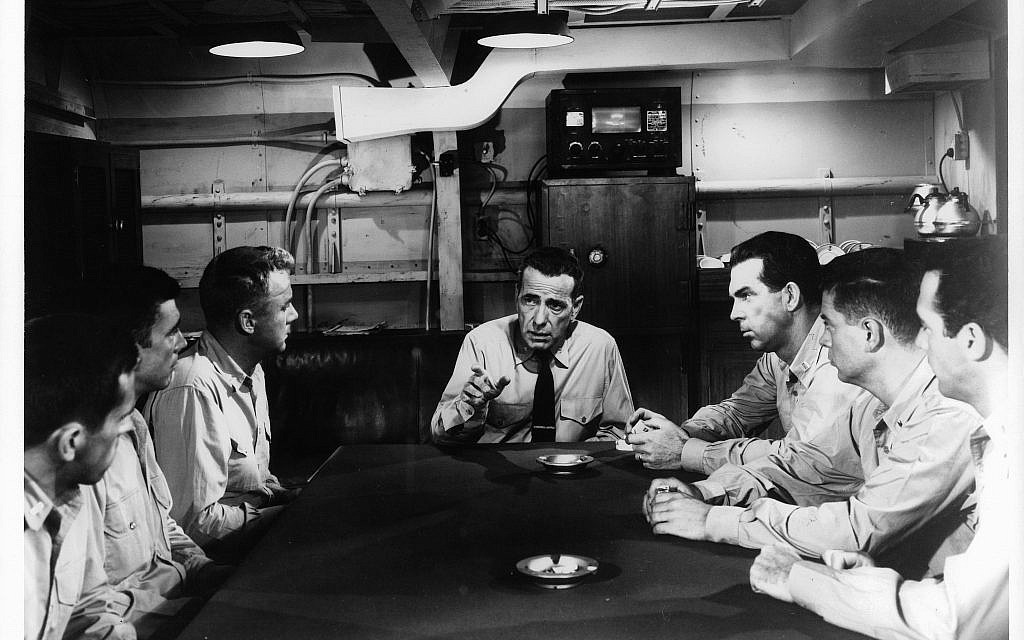Herman Wouk, an American writer of substantial importance has died. The Pulitzer Prize author of such masterpieces as “The Caine Mutiny” was 103, only 10 days from his 104th birthday. He was described as a man who made American literature “kinder, gentler, better” by his peers upon the occasion of his 80th birthday. An extraordinary tribute considering his subject matter.

“The Caine Mutiny,” of course, was made into a movie starring Humphrey Bogart as the unstable commander, Lt Commander Philip Francis Queeg, of a Navy, ship with odd fixations on a pair of metal balls he constantly rolled in his hand and some missing strawberries, an incredible delicacy on a US Navy ship.

One reading of the book and the subsequent movie was that Lieutenant Commander Queeg was a power mad authoritarian. A more subtle reading — which military men of that age would have understood — was that the mutiny was not justified. That the commander was, in fact, not “unfit” for command, and that the officers had, in fact, been guilty of mutiny.
It became a historic note of considerable importance, figuring in the writing of the 25th Amendment to the US Constitution wherein an “unfit” commander — POTUS — can be removed from office and returned to office.
Here is a good article discussing the parallel considerations among the movie, the 25th Amendment, and current affairs.
How The Caine Mutiny impacted the 25th Amendment to the US Constitution
He won the Pulitzer for the book; it was made into a movie, and an adaption called “The Caine Mutiny Court-Martial,” became a Broadway play.
He was a writer who outlived his audience
Once upon a time, serious people had a cocktail, a cigarette, and read a Herman Wouk book. He was a Jew and brought his faith into his works in a manner that was totally transparent, but undetectable. This open acknowledgement of his spirituality and faith was quite different from the authors of his time. Men such as Hemingway and James Joyce were dismissive of religion, skeptical, and openly anti-religious in their writing and their lives.
One learned about Judaism from Wouk’s books by osmosis rather than Talmudic study. Many Americans’ knowledge of Judaism started with a Wouk book, but you never realized it.
Wouk published a non-fiction work, “This is My God” in 1959 that was acclaimed as a fair, open, and even-handed defense of religion in general, and the Jewish faith, in particular. It is to this day a good read.
He was a prolific writer who wrote a a handful of important “doublets” — stories that had a companion piece.
Amongst my favorites were:
“The Winds of War” and its mate “War and Remembrance” — these two books became an Emmy Award winning TV miniseries that starred Robert Mitchum. The series received the highest television viewership ratings of its times.
“The Hope” and “The Glory” — a historically accurate account of the first eighteen years of the existence of the Nation of Israel. The historical frame of reference is so accurate that a student seeking an accurate story of where Israel came from and what it took to survive need look no further. [Can somebody please send them to Rep Ilhan Omar? I’ll pay for them.]
Herman Wouk published his last book, “The Lawgiver,” at age 90 and had just finished a memoir at age 100. There was no quit in this writer.
Wouk came by his knowledge of the US Navy honestly having been a Navy officer in the Pacific during World War II. He would say in later years that the boredom gave him sufficient time to write and to consider his stories. In the war, he saw fits of action and participated in the landings at New Georgia, the Gilbert-Marshall Islands, Mariana-Palau Islands, Battle of Luzon, the Invasion of the Lingayen Gulf, and Okinawa.
He wrote “Marjorie Morningstar” — the story of a young Jewish woman coming of age and assimilating into the culture of an America that had stood on the sidelines during much of the Holocaust.
His agent said it was a death sentence, but the book ended up as a movie starring Natalie Wood. Showing that life is, indeed, stranger than fiction, Wouk ended up buying Natalie Woods’ Palm Springs home and living there many years. [This picture is of Natalie Wood and husband, Robert Wagner, who she married TWICE. They were the IT couple of their time.]

Wouk was married to Betty Sarah Brown who he met while in the US Navy when his ship was in dock for repairs in San Pedro, California. She converted from Protestant to Judaism as a prelude to their marriage.
Thereafter, Wouk credited her with being his muse, his administrative genius, his only alpha reader, his literary agent, and the key to his commercial success, saying, “I wrote nothing that was of the slightest consequence before I met Sarah. . . . And, I would say my literary career and my mature life began with her.” Sarah died eight years ago.
He wrote:
Aurora Dawn – 1947
City Boy: The Adventures of Herbie Bookbinder – 1948
The Traitor (screenplay) – 1949
The Caine Mutiny – Pulitzer Prize Winner – 1951, later a movie
The Caine Mutiny Court-Martial (screenplay) – 1953
Marjorie Morningstar – 1956, later a movie
Slattery’s Hurricane – 1956
Nature’s Way (screenplay) – 1957
This is My God: The Jewish Way of Life (non-fiction) – 1959, 1973 Revised
Youngbloode Hawke – 1962, a story modeled on the life of the author Tom Wolfe, another favorite
Don’t Stop the Carnival – 1965, later a musical with Jimmy Buffett
The Winds of War – 1971, later a television series that won an Emmy
War and Remembrance – 1978, later a television series
Inside, Outside – 1985
The Hope – 1993
The Glory – 1994
The Will to Live On; This is our Heritage (nonfiction) – 2000
A Hole in Texas – 2004
The Language a God Talks: On Science and Religion (non-fiction) – 2010
The Lawgiver – 2012
Sailor and Fiddler: Reflections of a 100-Year Old Author (non-fiction) – 2015
The ones in RED above an educated person must read at least twice in a lifetime.
Please go read those books. You will be a better person for it. Be well.
